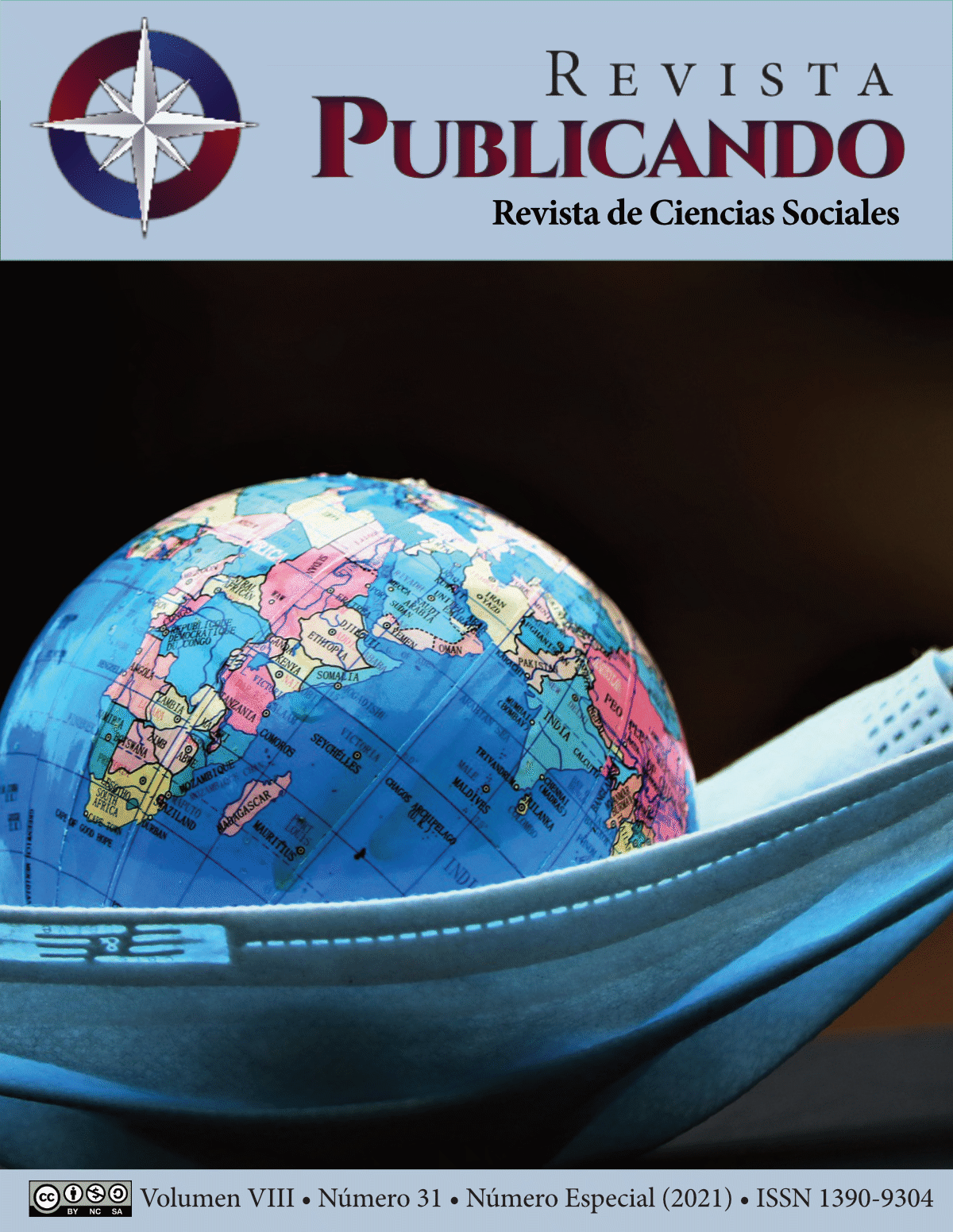Abstract
An invisible enemy has been affecting humankind since the end of 2019 and has not yet been fully controlled, even though vaccination is available worldwide as a direct countermeasure. In this sense, governmental entities have directed actions to address the monetary consequences left in its wake by COVID-19. The main objective is to describe the changes in social, labor and tax policies applied by the Colombian State for business recovery in the face of the crisis generated by COVID-19. Methodologically, the authors applied direct observation of the national news spectrum and the review of formal documents issued by the Presidency of the Republic and the Ministries in response to the proposals made by the Colombian State in terms of social, labor and tax assistance supported by decrees, laws, and resolutions. It was found that the first measures taken were related to taxation, followed by the labor issue to preserve formal jobs and the development of activities with biosafety measures, as well as the proposed social assistance plans to benefit poor and vulnerable communities. It is concluded that adopting these transitory measures helps the companies and seeks to protect the citizens.
References
Álvarez, A., Becerra, O., Bernal, C., Daly, J., Quigua, J.y Cruz, Y. (2021). Direct and Indirect Effects of herbivory. In Centro de estudios sobre desarrollo económico. (Universida, Vol. 8, Issue 1).
Bonet-Morón, J.; Ricciulli-Marin, D.; Pérez-Valbuena, G.; Galvis-Aponte, L.; Haddad, E.; Araújo, I. y Perobelli, F. (2020). Impacto económico regional del Covid-19 en Colombia: un análisis insumo-producto. Banco de la República, Investigaciones Económicas. Tomado de: Impacto económico regional del Covid-19 en Colombia: un análisis insumo-producto | Portal de Investigaciones Económicas (banrep.gov.co)
Burki, T. (2020). COVID-19 in Latin America. The Lancet. Infectious Diseases, 20(5), 547–548. https://doi.org/10.1016/S1473-3099(20)30303-0
Caballero, S. (2021). Innovation as recovery strategy for SMEs in emerging economies during the COVID-19 pandemic. Research in International Business and Finance, 57(May 2020), 101396. https://doi.org/10.1016/j.ribaf.2021.101396
DANE. (2020). Indicador de Seguimiento a la Economía (ISE) Boletín técnico. https://www.dane.gov.co/files/investigaciones/boletines/pib/bol_ISE_ago2020.pdf
DANE (2021). Caracterización pobreza monetaria y resultados clases sociales 2020. Boletín. https://www.dane.gov.co/files/investigaciones/condiciones_vida/pobreza/2020/Presentacion-pobreza-monetaria-caracterizacion-clases-sociales-2020.pdf
Danielli, S., Patria, R., Donnelly, P., Ashrafian, H.y Darzi, A. (2021). Economic interventions to ameliorate the impact of COVID-19 on the economy and health: an international comparison. Journal of Public Health (Oxford, England), 43(1), 42–46. https://doi.org/10.1093/pubmed/fdaa104
De Soto, J., Sánchez, A.y Bagus, P. (2021). Principles of monetary & financial sustainability and wellbeing in a post-covid-19 world: The crisis and its management. Sustainability (Switzerland), 13(9), 1–11. https://doi.org/10.3390/su13094655
Díaz, L., De la Sierra, L., Palacios, A., Rodriguez, M.y Flores, R. (2020). Critical review of social, environmental and health risk factors in the Mexican indigenous population and their capacity to respond to the COVID-19. Science of the Total Environment, 733, 139357. https://doi.org/10.1016/j.scitotenv.2020.139357
De La Hoz Suárez, A., González Vergara, M., Lugo Hernández, E.y Arenilla Buelvas, M. (2020). Aplicabilidad del principio contable de negocio en marcha en tiempos de COVID-19. SUMMA. Revista Disciplinaria En Ciencias económicas Y Sociales, 2(Especial), 141-154. https://doi.org/10.47666/summa.2.esp.10
De La Hoz Suárez, A. I., De La Hoz Suárez, B. A.y Cantillo Padrón, J. C. (2020). Ayudas gubernamentales como alivios ante la emergencia del COVID-19: Algunas consideraciones contables. Revista Venezolana De Gerencia, 25(3), 12-19. https://doi.org/10.37960/rvg.v25i3.33350
Deloitte (2020). Consideraciones contables relacionadas con la enfermedad Coronavirus 2019. Recuperado de: https://www2.deloitte.com/content/dam/Deloitte/cr/Docum ents/audit/documentos/IFRS-in-Focus--Enfermedad-COVID19.pdf
Entornointeligente.com (2021). Ecuador y Colombia acuerdan mitigar efectos del covid-19 en la frontera. Tomado de: Ecuador y Colombia acuerdan mitigar efectos del covid-19 en la frontera » EntornoInteligente
Fondo Monetario Internacional (2020). Medidas de política para mantener la salud de la economía mundial. Diálogo a fondo. Recuperado de: https://blog-dialogoafondo.imf.org/?p=12999
IFRS (2001). Contabilización de las Subvenciones del Gobierno e Información a Revelar sobre Ayudas Gubernamentales, London.
López-Calva, LF. y Ortiz-Juárez, E. (2011).“A Vulnerability Approach to the Definition of theMiddle Class”, Mimeo, World Bank.
Mejía, F. (2020). COVID-19: Costos económicos en Salud y medidas de contención para Colombia. (Centro de, Issues 1–14).
Pérez, G., Ricciulli, D., Bonet, J.y Barrios, P. (2021). Reglas fiscales subnacionales en Colombia: desde su concepción hasta los resultados frente al COVID-19. https://repositorio.banrep.gov.co/bitstream/handle/20.500.12134/9998/DTSERU_297.pdf?sequence=6&isAllowed=y

This work is licensed under a Creative Commons Attribution-NonCommercial-ShareAlike 4.0 International License.
Copyright (c) 2021 Aminta I. De La Hoz Suárez, Julio C. Cantillo Padrón, Aris Ramírez Junieles




